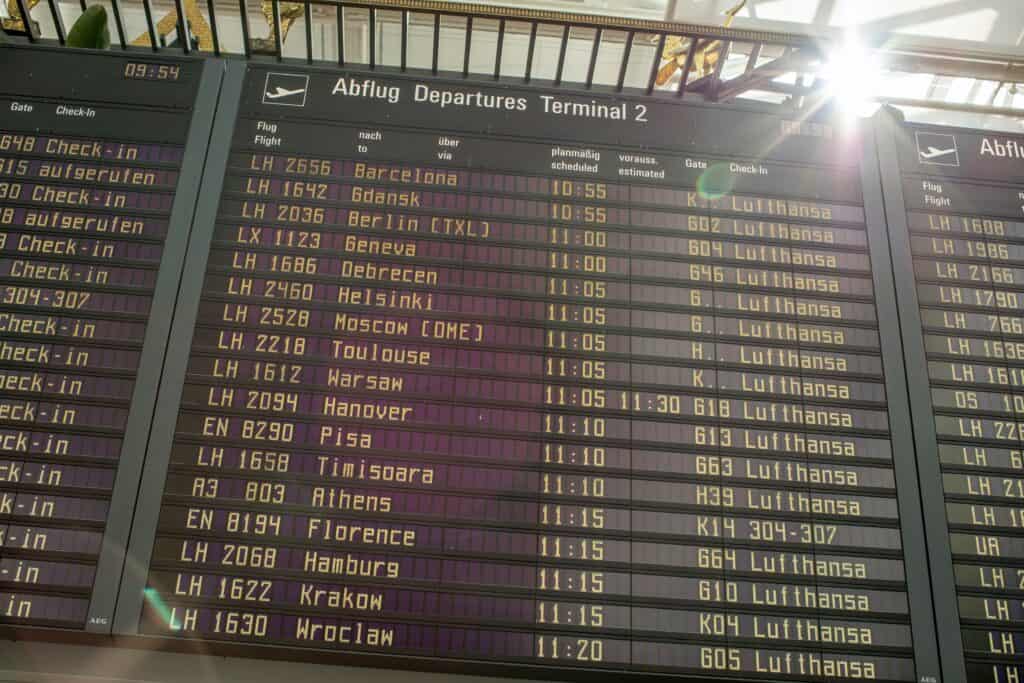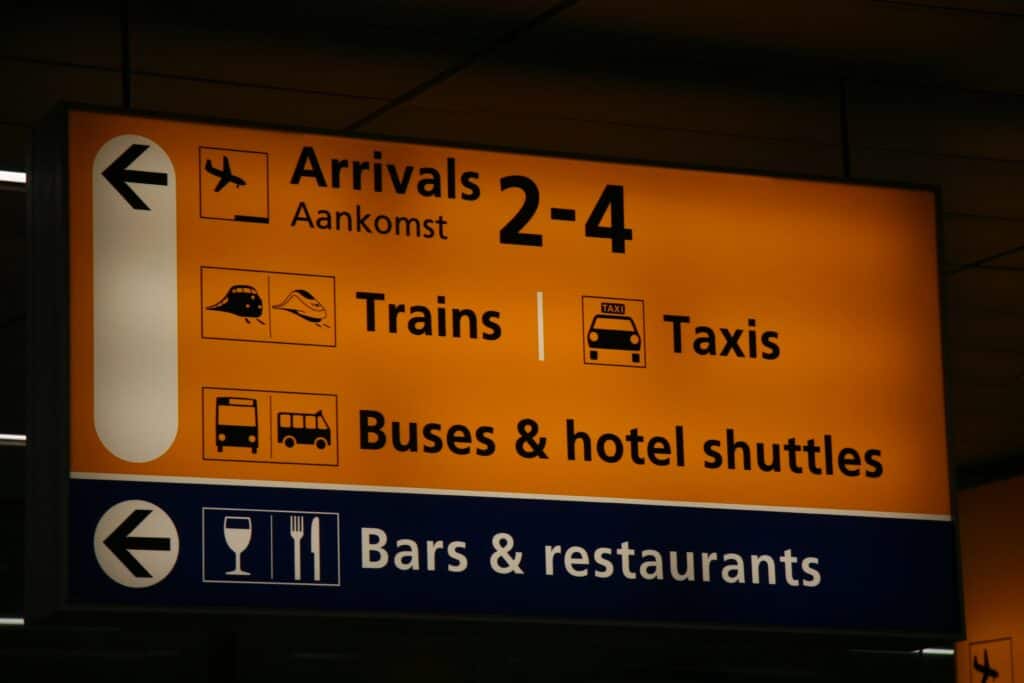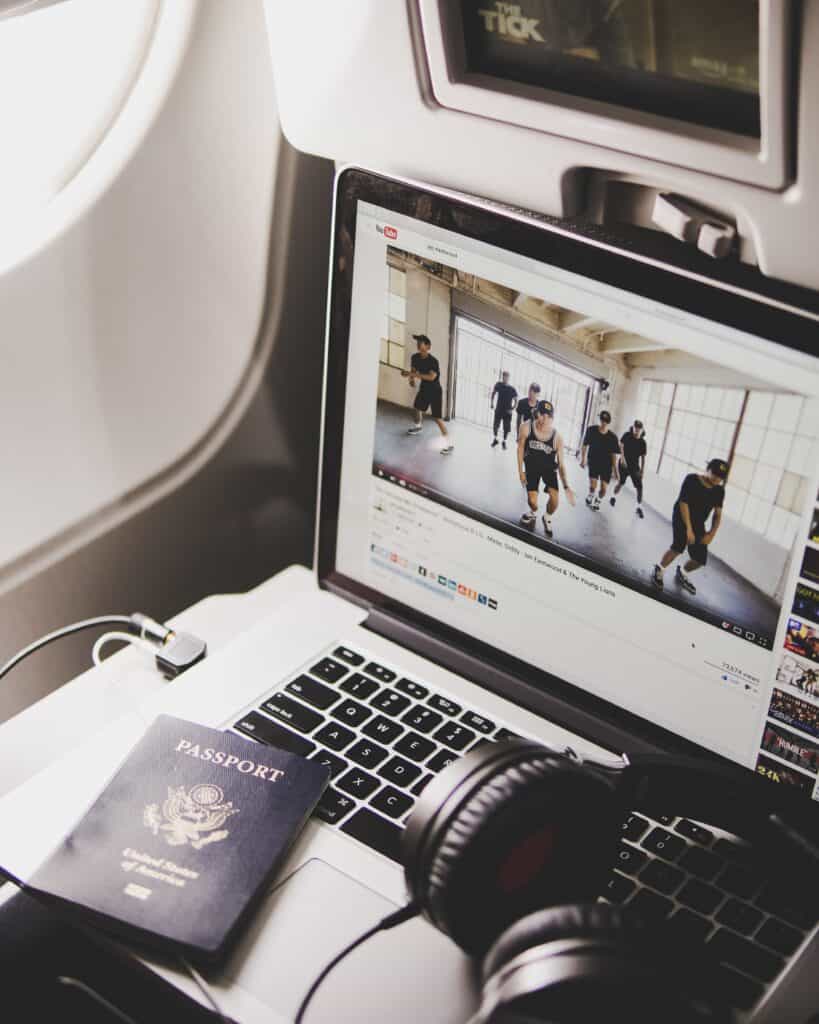
How To Beat Jet Lag | 9 Great Tips

Have you ever felt totally exhausted, disoriented and unable to concentrate after a long flight? If so, you are one of many people who suffer from jet lag when flying long distance.
Whether it stems from the change in time zones or lack of sleep on planes – we’ve all experienced its effects at some point during our travels. But what if there is a way to beat this traveller’s nemesis? We have great news for you, there is!
In this blog post, we will be sharing 9 great tips on how to beat jet lag. So grab a cup of coffee (or may be some herbal tea instead), get comfortable, and let us show exactly how to quickly transition into your new time zone.
What is Jet Lag?
Jet lag (or desynchronosis) is a form of physical fatigue that occurs when the body’s natural circadian rhythm (or internal body clock) is disrupted. This can happen when we cross multiple time zones in a relatively short amount of time, so mainly associated when travelling by plane.
Our circadian rhythm regulates many bodily functions such as hunger, energy levels, and sleep patterns. When jet lag sets in, our bodies still think it is in a different time zone than the local time and this leads to a number of symptoms including tiredness and insomnia.

What are the Most Common Symptoms of Jet Lag?
The most common symptoms of jet lag include fatigue, insomnia, headaches, irritability and stomach upsets. Other symptoms may include difficulty concentrating and the loss of appetite.
Symptoms typically last from a few days to about a week depending on the length of your flight and how many time zones were crossed. It is also important to note that these symptoms can vary from person to person and are largely dependent on the individual’s body clock and their physical response to the changing environment.
How To Beat Jet Lag
If managed properly you get beat jet lag by following these relatively easy simple tips. With these tips under your belt, jet lag won’t stand in the way of a wonderful trip. So let’s get started.

1. Start Adapting to the New Time Zone
Start to move to your new time zone by moving your meals and sleep patterns closer to the destination of your new time zone. Do this gradually by shifting your bedtime, meals and activities by a few hours each day leading up to your travels.
Set any watches and devices to the new time zone as soon as you depart and just forget about your old time zone.
Moving your bedtime by a few hours before you travel will help you adjust to the destination’s local time for when it is time to sleep. Moving your meal times will help fight any hunger pangs at odd times. Simply being proactive with your time zone adjustment is a great way to beat jet lag.

2. Manage Your Arrival Time
One of the most important jet lag tips is to plan your arrival time. The best time to arrive at your destination is in the morning as it gives you more daylight hours and the natural light will help reset your body clock faster. Movement, natural daylight and fresh air will help you stay awake and start getting your body to adjust quicker.
If possible, try to avoid arriving late at night as jet lag will be more severe due to tiredness and the dark.
3. Manage Your Bedtime
For the first few days, head to bed at around 9 pm. It is important to remember that jet lag can take up to several days before it goes away completely, so make sure you rest as soon as possible. Good sleep and rest are essential for jet lag recovery as they will help you reset your internal clock and get onto the local time as quickly as possible.

4. Stay Hydrated
Hydrate, hydrate, hydrate! This should be an obvious one but often gets overlooked when travelling. Dehydration is one of the most common causes of jet lag. Throughout your journey drink plenty of fluids, including water, but also include juices and herbal teas for added hydration and health benefits. Staying hydrated will help reduce symptoms of jet lag such as headaches and tiredness. When flying, avoid alcohol and caffeine as much as possible as these are diuretics and make it harder for our bodies to retain moisture; so will dehydrate you more.
If you need to drink caffeine-based drinks to stay alert and energized do so in moderation and try and stop at least 4 hours before you go to bed.
Likewise, on the plane you may be tempted to have a few glasses of wine etc., but this will affect your sleep. Also, be warned a hangover with jet lag is not a combination you want to experience.
Finally, don’t forget to keep hydrated when you arrive.

5. Eat Light
Food is also an important factor in combating jet lag. Eating light, healthy and balanced meals can help you regulate your energy levels and minimize jet lag symptoms such as fatigue and indigestion.
Light meals are easier to digest and will ensure that you don’t feel too weighed down and sluggish while travelling long distances. Eating rice and pasta will help with sleep on flights along with protein-rich food such as chicken, fish and eggs.
6. Eat Well
Minimise or even better avoid sugary snacks and drinks which may give you an initial boost but very soon afterwards will leave you feeling more tired due to their high sugary content.
Foods like leafy greens, whole grains, poultry, fish, nuts and seeds are packed with the essential vitamins and minerals your body needs to stay energized. Additionally, these foods contain antioxidants that can help repair jet lag-induced stress on the body.
Fruits are also helpful in beating jet lag as they are a natural source of energy and relatively easy to eat when travelling. Citrus fruits such as oranges contain lots of Vitamin C which helps boost immunity and keep jet lag at bay. Bananas are a great source of potassium, which helps regulate blood pressure levels when travelling. Apples provide both vitamins and dietary fibre, while blueberries offer high levels of antioxidants that help fight jet lag fatigue.
Spices have long been used as natural remedies for jet lag due to their anti-inflammatory properties. Garlic is known to reduce jet lag symptoms such as sluggishness and depression, while ginger helps soothe queasy stomachs associated with travel. Turmeric has powerful antioxidants that protect against oxidative stress caused by jet lag’s disruption of circadian rhythms and it also reduces inflammation throughout the body.
By eating well when travelling, you can help reduce the severity of jet lag symptoms and get back to feeling energized quickly. Eating a balanced diet will also boost your immune system so that you are better equipped to deal with jet lag.

7. Manage Your Rest & Screen Time During Your Journey
During your journey try and make yourself as comfortable as possible to help you rest. Use sleep masks, ear plugs or noise-cancelling headphones to help with sleep and wear layers to keep warm.
To help you get good quality sleep try avoiding screens (mobile phones/laptops etc.) close to bedtime. This is because the blue light emitted from screens has been proven to disrupt our circadian rhythm making it harder for us to fall asleep quickly.
Additionally, spending extensive amounts of time interacting with bright screens makes it more difficult for one’s mind to switch off before going to sleep. Consequently, this leads to poorer quality sleep. Try reading books instead or listening to soothing music to help you wind down and get some sleep.
Use your devices to set reminders to keep track of time and remind you when it is time to wake up or go to sleep. This will help track time in the new local time of your destination, rather than your home time zone, which is key to fighting jet lag.
Finally, when you are ready to sleep at your accommodation, make your room cooler and block out all the light so it is as dark as possible to help you sleep.
8. Manage Your Light Exposure
We are designed to respond to stay awake when it is light and sleep when it is dark and travelling quickly through several time zones will interrupt our internal clock as the exposure to light changes. This interruption to our internal clock is often a major factor in jet lag. As soon as you arrive at your destination, if possible spend time outdoors in natural sunlight. This will help reset your body clock more quickly. Sunlight also helps boost Vitamin D levels which helps provide better mental clarity and also stimulates serotonin production in our bodies which makes us feel happier and more energetic.
Likewise, it is important to reduce the amount of exposure to light before bedtime. This means making sure your screen time is limited during the first few days in your new destination, so try and switch off your electronics at least one hour beforehand.
Managing exposure to light is a powerful tool in beating jet lag. Taking these simple steps with light exposure can help ensure that your body adjusts more quickly to your new time zone.

9. Keep Moving & Exercise
Another great simple tip to beat jet lag is moving and exercising. Research has shown that physical activities such as walking, running, or swimming can help beat jet lag. This is because exercise helps increase alertness during the day and enhances sleep at night and so by exercising you are resetting your internal body clock.
Furthermore, exercise releases endorphins (a natural hormone) which act as painkillers and mood enhancers. These endorphins will help reduce fatigue and irritability. So moving will not only get your body clock adjusted to the new time zone faster but will also make you feel better.
It is so often easier to go to sleep when you arrive, especially if you have had little or no time to rest and a difficult journey. Try and avoid sleep and instead have a shower to refresh and get your second wind and then go out and move. If your accommodation has a pool or gym, just using these facilities for 30 minutes will make such a difference when it comes to beating jet lag.
If you have to sleep, keep it short and two hours maximum should be more than enough to rest without compromising your sleep at night.
For your first morning in your new destination, try not to sleep in, have something scheduled so you have something to get up for. Book a tour, meet someone, make reservations for brunch etc. and get up and moving to get your body onto the new time zone.
So to Wrap Up on how to beat jet lag
These are our most comprehensive 9 tips to help your body adjust to the jet lag when you travel across the globe. With a bit of preparation and preventative steps, jet lag shouldn’t stand in the way of getting the most from your trip. So next time when embarking on long-distance travel be sure to follow these great tips on how to beat jet lag fast and have a great trip!

Further FAQs:
Is it Harder Travelling West or East?
The challenge of jet lag is greater when travelling east because your body needs to adjust more quickly in less time. This makes it even more important to use these 9 tips to beat jet lag.
Are there any Long Term Effects of Jet Lag?
While jet lag for many people is usually only a temporary discomfort, it can have some long-term effects if not managed properly.
The most common long-term effect of jet lag is the risk of developing insomnia. So it is so important to plan and start adjusting your sleep schedule gradually before your trip.
Additionally, it is also important to stay hydrated (limit caffeine intake), get plenty of fresh air and natural light.
Lastly, if jet lag persists for more than several weeks following a trip, it might be worth consulting with a medical professional.
Is there a Cure for Jet Lag?
Unfortunately, jet lag is a natural consequence of long-distance travel and there is no known cure. So is so important to be aware of the effects and prepare for them in advance. Taking these 9 tips to beat jet will make your travel experience more enjoyable.
For more great hacks and tips on flying, read our great blog posts on Great Flights Hacks That Will Make Your Journey More Comfortable and How To Sleep On Flights.
Furthermore, for some great product recommendations on how to beat jet lag, read this blog.

